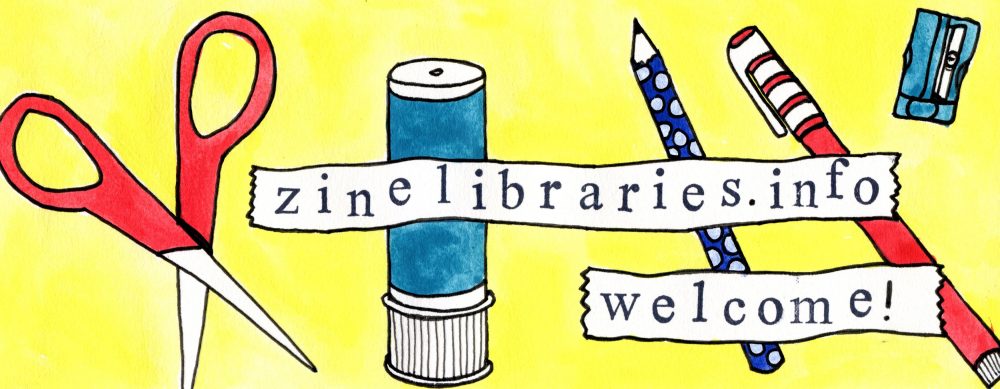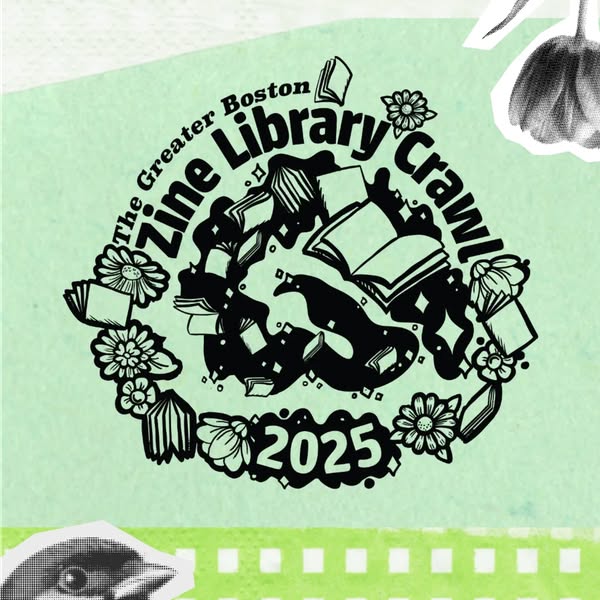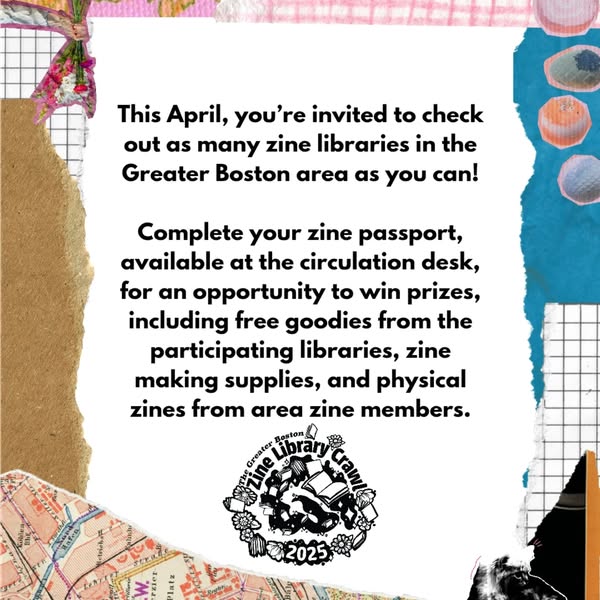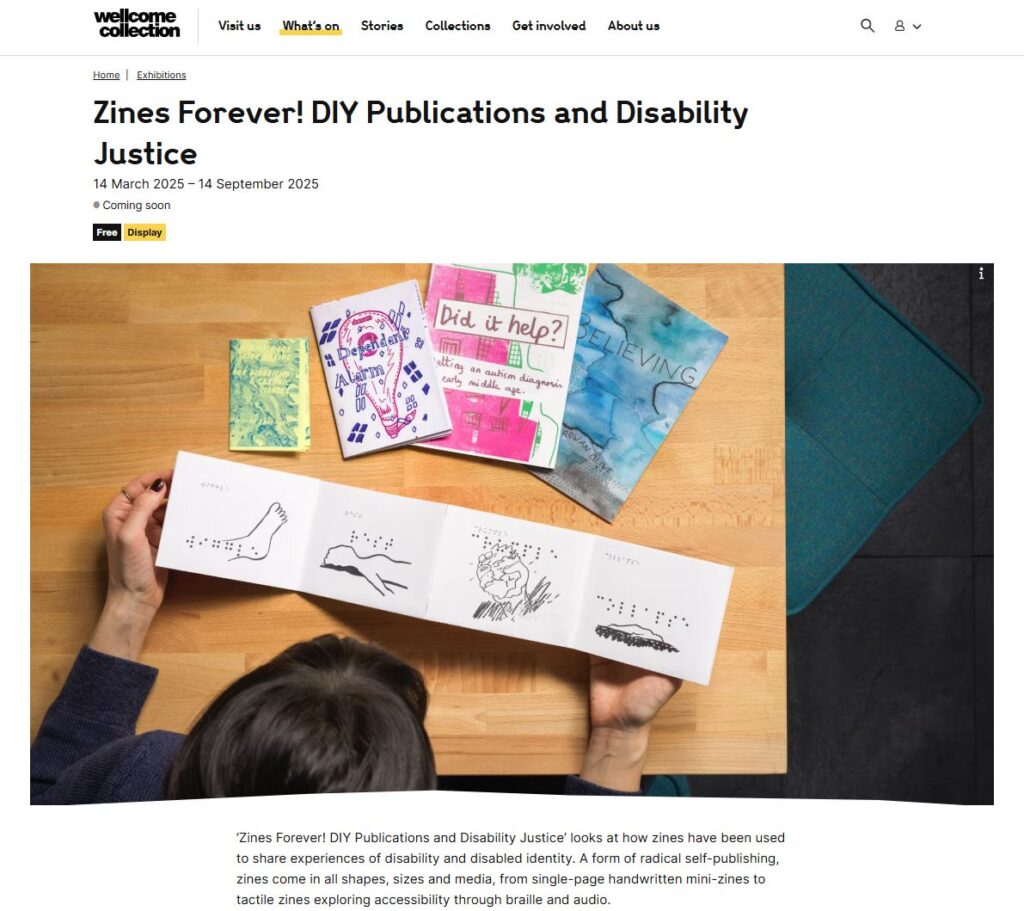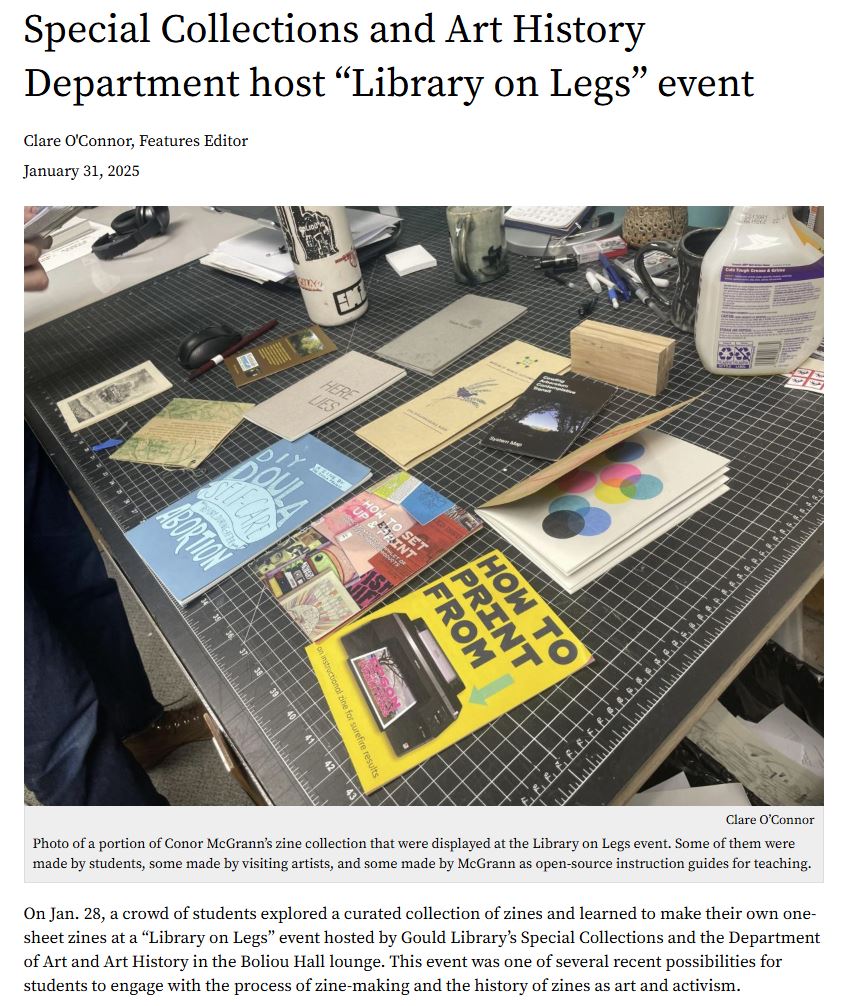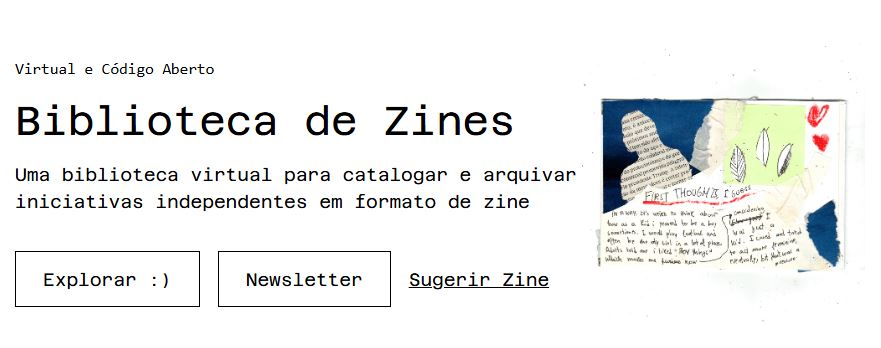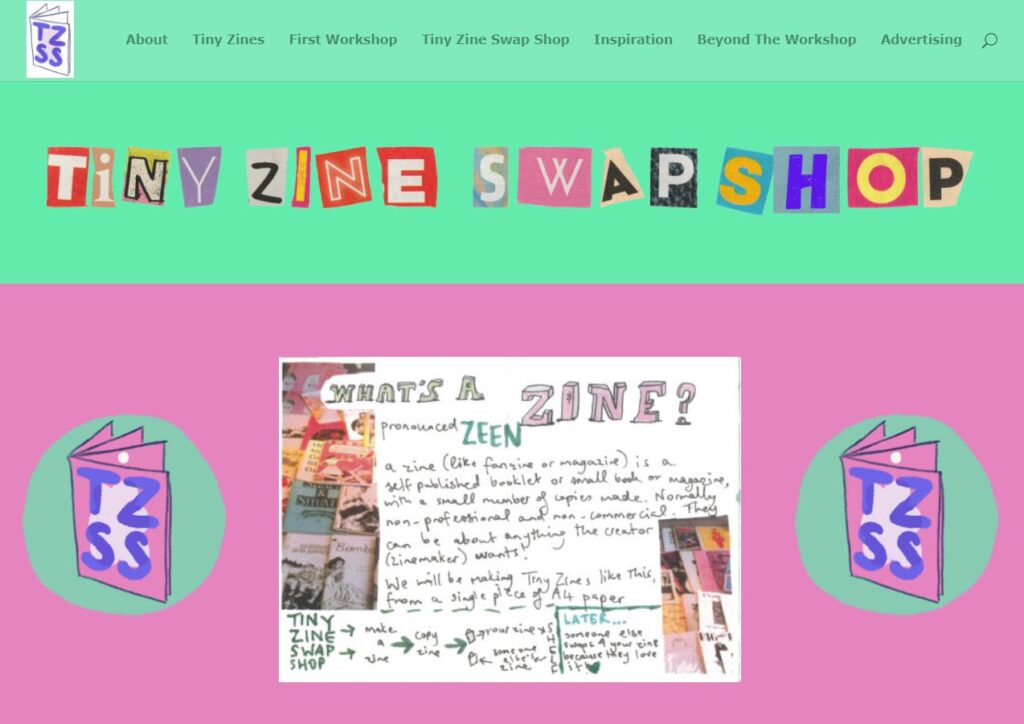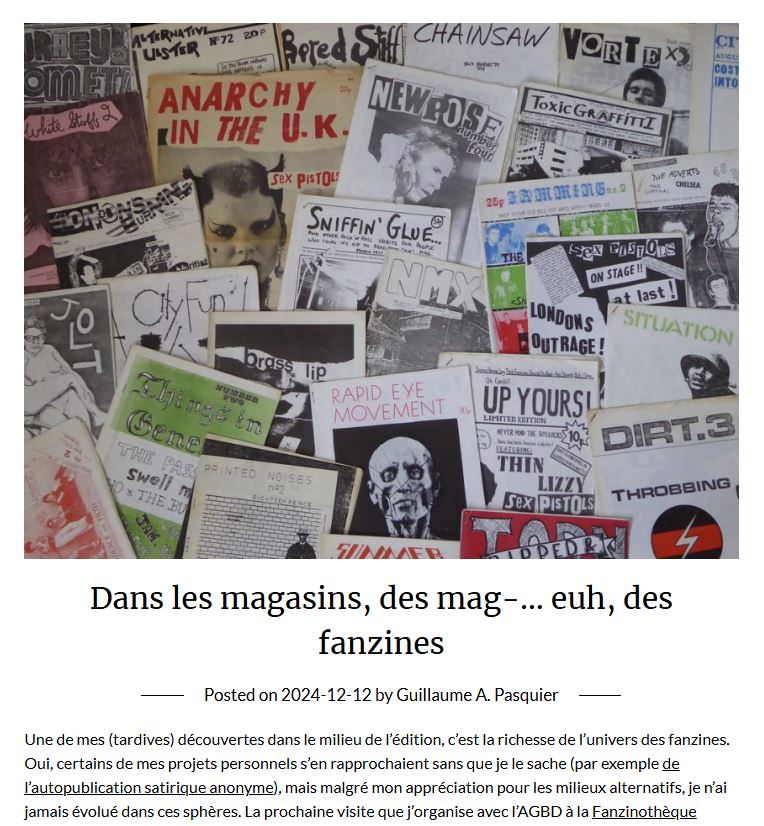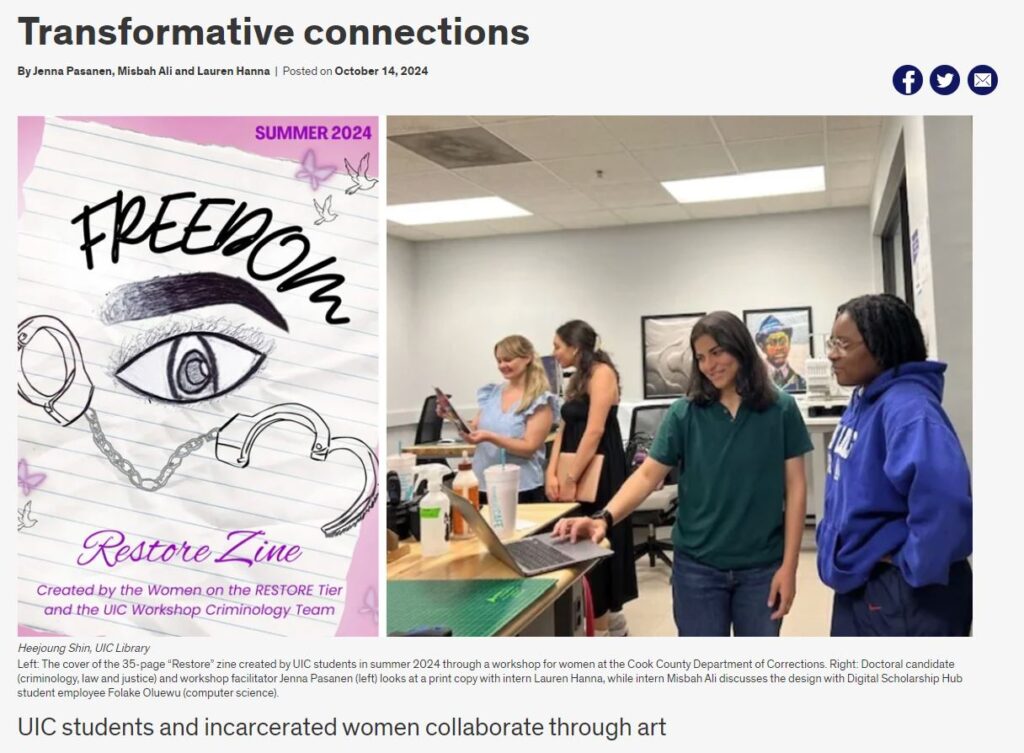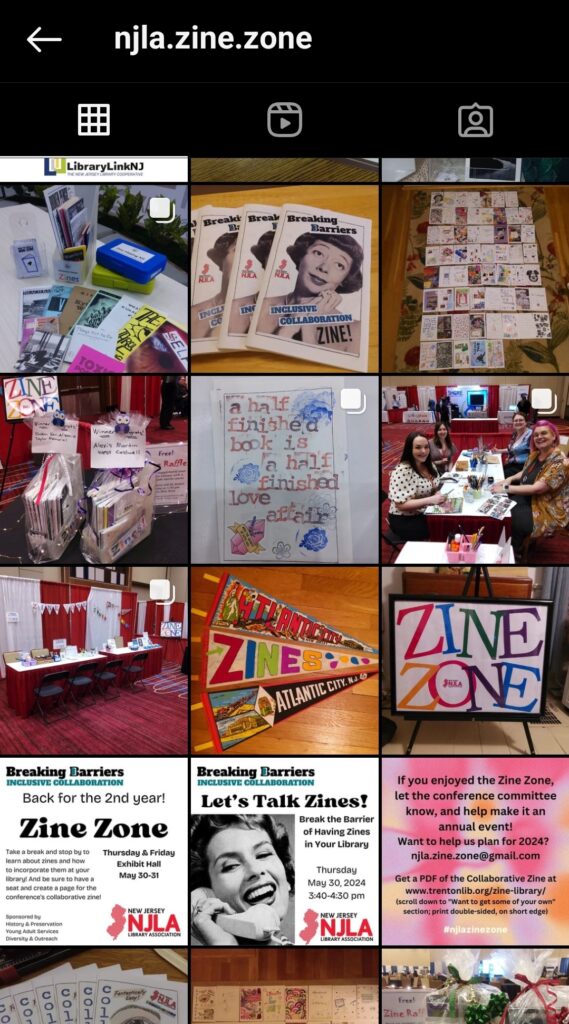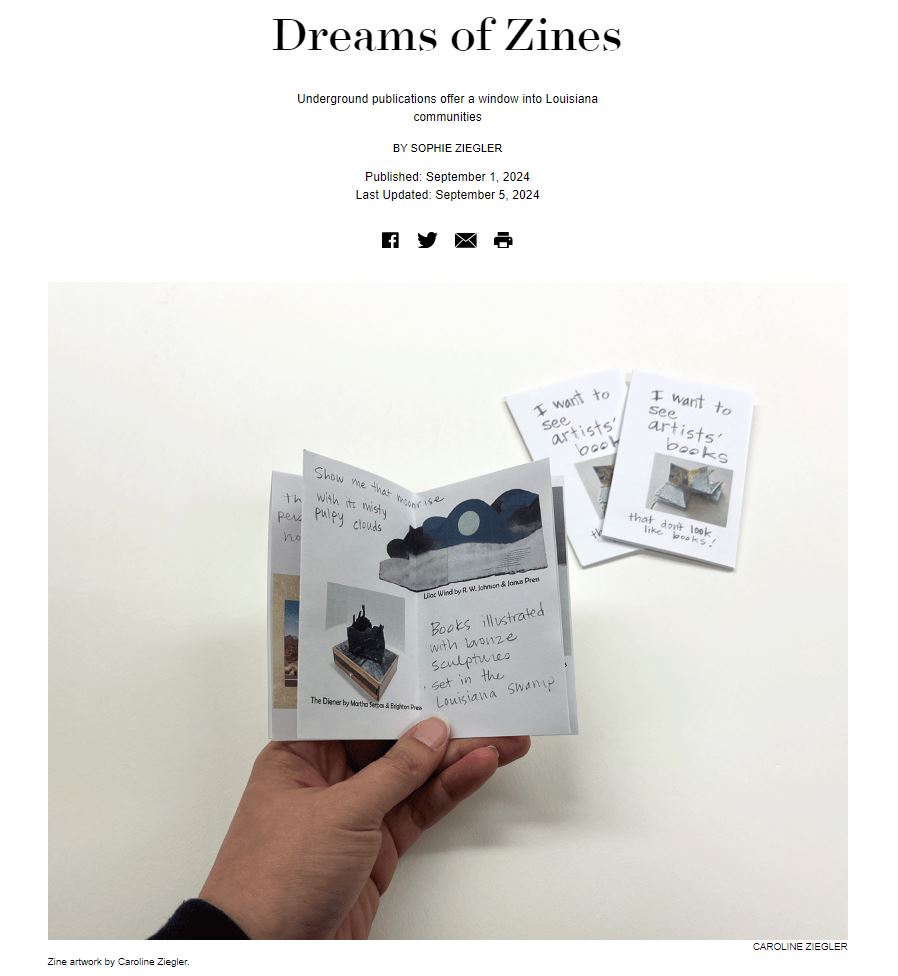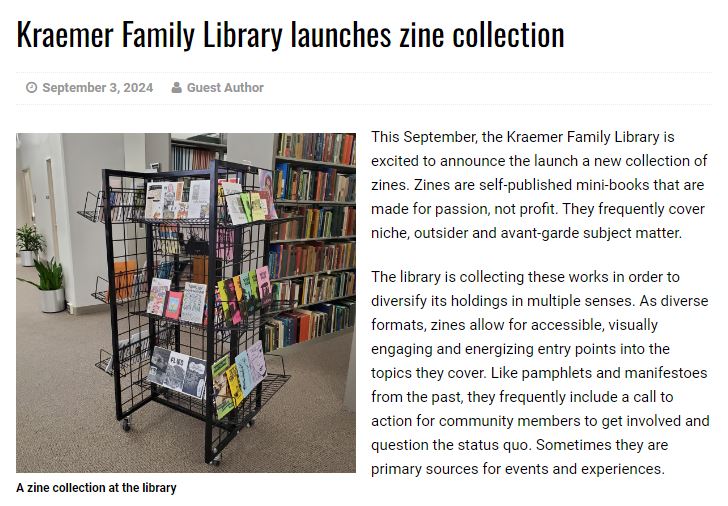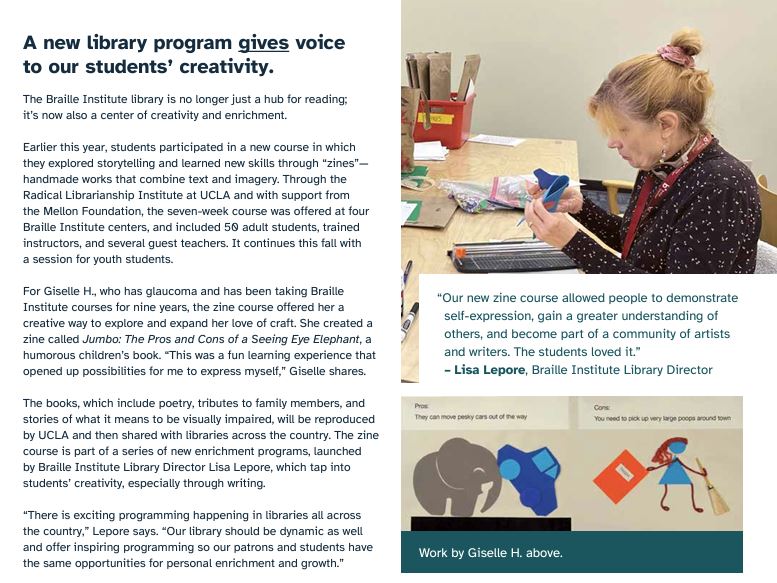One of our zine librarian colleagues from England, Lilith Cooper. has shared their recently published PhD thesis titled The zINe-Between: A Creative Practice Exploration of Health, Liminality, Lived Experience and the Zines in Wellcome Collection. The abstract describes its scope:
Wellcome Collection, a museum and library in London, UK, has intentionally collected zines around health, medicine and the human condition since 2016. The outcome of a Collaborative Doctoral Award with Wellcome Collection, this creative practice thesis explores some of these 1000+ zines, alongside selected zines outside the collection, grouped around three themes: zines made in, from or about beds; zines which involve becoming disabled; and zines created during the COVID-19 pandemic. This exploration moves between physical and digital zines, feeling out both their distinct qualities and the space between them as a route into contemporary zine (re)production, cultures and communities.
This project is composed of two interwoven parts: a collection of original zines created over its duration and an accompanying critical thesis. Through a creative methodology which brings together zine making, autoethnographic and phenomenological approaches to zines, and semi-structured interviews with librarians at Wellcome, I argue that the concept of liminality offers a productive framework for examining material, cultural and political aspects of contemporary zines’ content, production and communities of practice. In turn, the thesis contributes to a reconceptualisation of liminality, beyond the carefully managed processes of transition described in ethnographic accounts, as ongoing, affective, embodied, messy, and non-linear.
Both drawing on and extending interdisciplinary theories of liminality, the thesis focuses on zines made from and about spaces (sickbeds), experiences (becoming disabled) and times (the COVID-19 pandemic) that are in-between, transitional, or transformative. Whilst narrative approaches and approaches that prioritise the usefulness of lived experience to medicine, research or policy often treat liminality as a period of chaos, nonsense or absence, these zines made of and from the in-between offer insight into these periods of liminality in experiences of health, illness and disability. They hold space for the episodic, fragmented and non-linear, engage in affective sense-making, (re)produce third-space knowledges and prioritise the uses of lived experience for peers.
Within the original set of zines created alongside this thesis are zines which directly addresses the concerns of chapters, zines which involve and document wider practices of reproduction, distribution, and collection, as well as those which challenge or disrupt conventions of academic research. Zine making, as a practice-based research method, offers a generative approach to both an archival collection which is proximal, intimate, living, and liminal, and to archival objects which are visual-material-textual, records of practices and processes, and traces of communities of practice as much as products. Produced from the liminal positionality of doctoral research, these zines echo the ways that the zines in Wellcome Collection document and inhabit liminal experiences, spaces and times.
